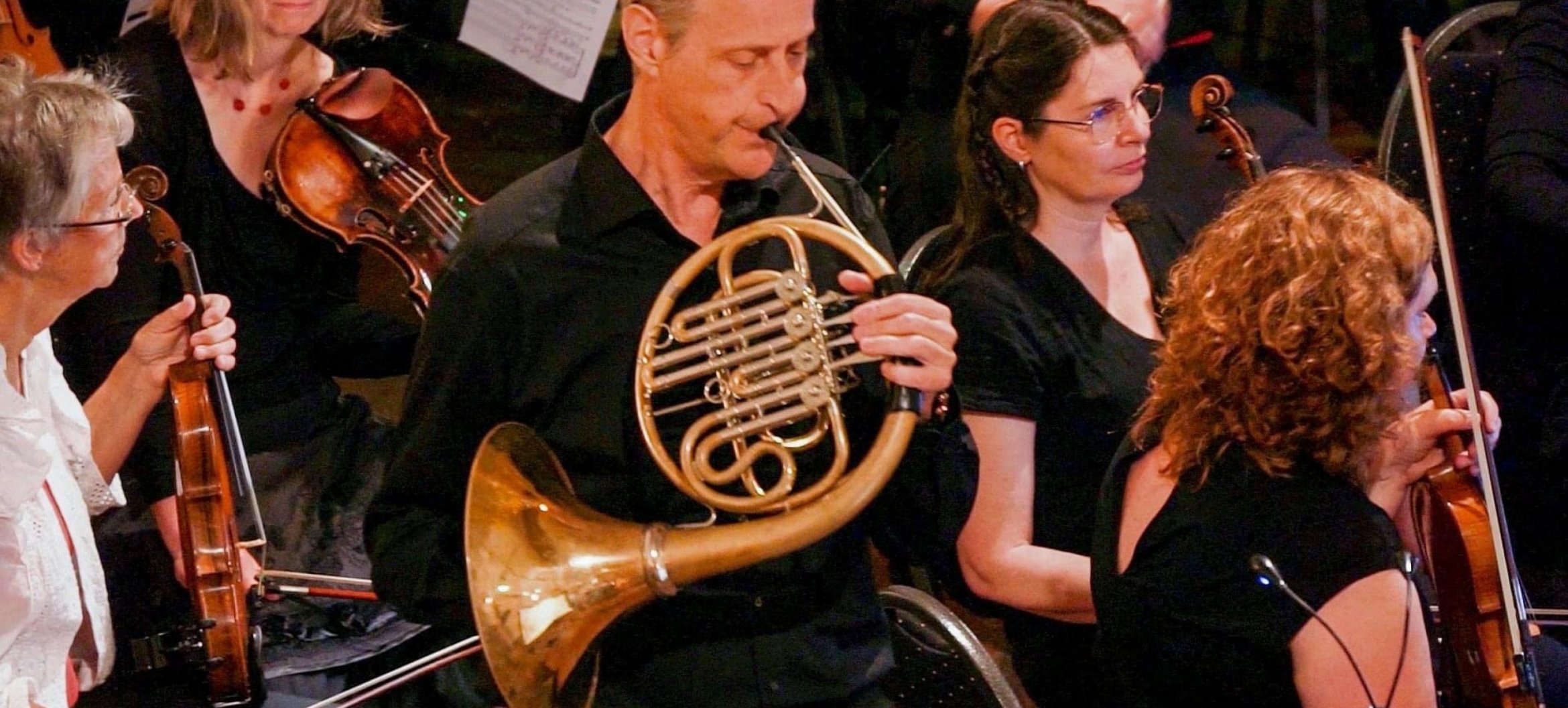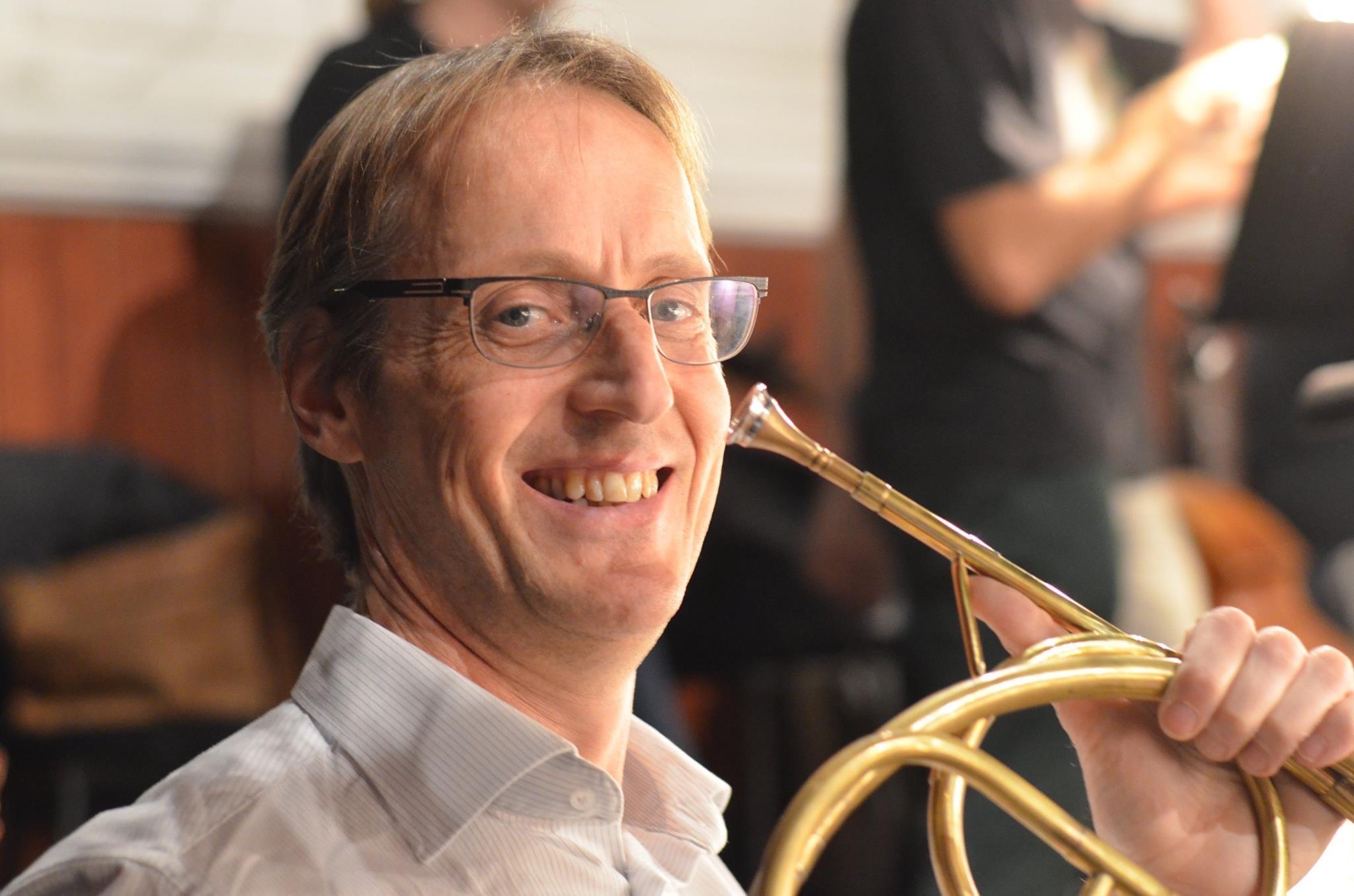Following your own path with hornist Stefan Blonk
- Music
In 2014, horn lecturer Stefan Blonk changed track radically. After twenty-five years as the principal hornist with Het Gelders Orkest, he left his main employer and decided to focus even more than before on 18th-century natural horn and on chamber music. So he started playing more often in ensembles and started his own company. He sells period instruments, mouthpieces and bags. In his classes at the master's course and the bachelor's course in Classical Music, he advocates creativity and following your own path.

According to Stefan, shifting his own work fits well with the premise of ArtEZ, where he has been teaching part-time since 1990. “At ArtEZ the freedom to be yourself is paramount, I like that. I didn’t have that freedom when I studied at the academy of music in The Hague. You get much more space here to really discover where your passion lies.”
In his time, “academy of music – audition – orchestra” was also considered the only route. That has changed, partly because there are fewer orchestras. “Students need to be more flexible. I have learned through my students that the road I have taken is not the only road. The orchestra has brought me a lot, but am happy to have a second career.”
Ambassador of a historical instrument
His heart is in the history of the horn, right from the beginning. More or less at random, he was handed the brass instrument as a child. At 14, he played the flute and his mother signed him up for the Hofstad Youth Orchestra. “There was a waiting list for the flute; the president needed horns. I did not know the instrument, but was immediately fascinated.” He got Ab Koster as a lecturer and they got along. “When Koster started playing the natural horn, I found that interesting. Later, in my academy of music days, I heard the Orchestra of the Eighteenth Century. Right after that, I bought a natural horn. Not to belong, but purely out of enthusiasm.”
I have learned through my students that the road I have taken is not the only road. The orchestra has brought me a lot, but am happy to have a second career."
In his fourth year at the academy of music, Stefan received a call from conductor Frans Brüggen of the Orchestra of the Eighteenth Century. Could he fill in with the natural horn? He participated and has continued to participate. “The natural horn is not just a precursor to the valved horn, but really a different instrument. It’s wonderful to discover how much was subsequently experimented with in the 19th century, very diverse, including with different valves.”
Now he sells such variants as the baroque horn and the piston horn. “Brüggen once said that we should be ambassadors of our instrument. I went a step further by selling them too, ha-ha!”

Allowing the student to discover for themselves as much as possible
As a lecturer, Stefan has developed over the years and knows how to get the best out of a student. “In the beginning, I copied my lecturer at the academy of music. I was a little severe, in itself not bad. But now I try to let the answers come more from the students. The horn is a very physical instrument. Then I ask: how does that feel? Putting that into words is important. I let the student discover it for themselves as much as possible, then it sticks.”
He is glad that the course is paying more attention to the tricky aspects of the trade. For stage fright, he used to get one tip: deep breath. He had to make do with that. “Fortunately, that has changed. I provide audition training. Then look at: how do you come up, what do you feel, what happens. You simulate an audition, so you get that experience in advance.”
The horn is a very physical instrument. Then I ask: how does that feel? Putting that into words is important. I let the student discover it for themselves as much as possible, then it sticks.”
Give creativity room and craft level rises
Stefan started looking differently at the role of creativity. “In the past, the craft of playing was paramount. Creativity was of lesser importance.” Now his lessons focus more on creativity and a little less on the craft of playing. “This is because I find that when creativity is given space, the level of craftsmanship also rises.”
In the world of Early Music, focused on performing authentically, Stefan says there is also more room for creativity. He sees the future in that, within the field. “The Early Music movement has set something in motion that is irreversible. Without that movement, classical music is doomed. Many orchestras have disappeared and more will, but it also presents opportunities. New directions can be taken.” He cites former student Marinka Kluiver as an example. “She followed her passion by choosing theatre and music; at KASKO, for example. Very nice.”
Follow Stefan Blonk
Website (where Stefan also sells his horns)
Become a professional musician with the bachelor's course Classical Music
Do you dream of becoming a professional musician? Intensive career counselling and practical internships allow you to carve out a niche in the job market. With this bachelor's course, you will learn to master your instrument to the hilt. You will learn to convert your talent into a vision for the future. At the end of the course, you will know what role you want to play as a musician in society.
Discover the bachelor's course
Develop your own artistic signature as a professional classical performer with the master's course Classical Music
Develop your own artistic signature as a professional classical performer and curator with the two-year English-taught master's course Classical Music in Zwolle. Being a successful musician nowadays means more than having talent and knowing your instrument: the field is constantly evolving, and old stories require new deliverance.


